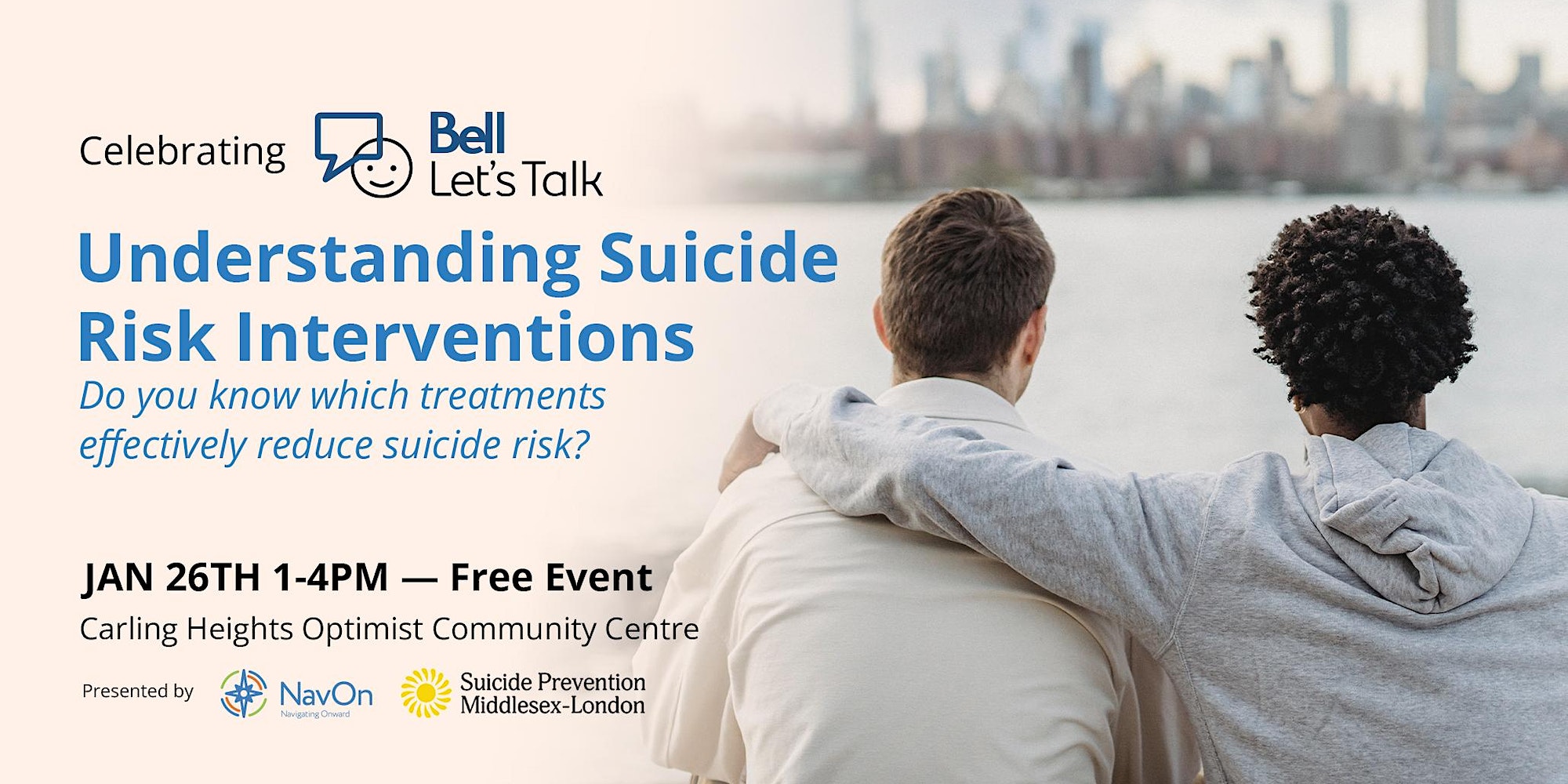
- This event has passed.
Celebrating Bell Let’s Talk Day: Understanding Suicide Risk Interventions
January 26, 2023 @ 1:00 pm - 4:00 pm EST
Free
Celebrating Bell Let’s Talk Day: Understanding Suicide Risk Interventions
Workshop goal: Understanding effective interventions for suicide risk reduction – current research and practice.
We tell people who are struggle with suicidal thoughts to go to therapy. So why are so few therapists trained in evidence-based interventions to reduce risk? Do you know which evidence-based interventions effectively reduce suicide risk?
People who are struggling with suicide risk often fail to receive interventions that could save their lives. We need to do more to train therapists in modalities that reduce risk for their clients/patients. There are no national standards that require mental health professionals to be trained as part of their formal education or throughout their careers. The American Foundation for Suicide Prevention and the Canadian Association for Suicide Prevention reference this lack of competencies for clinicians. Effective interventions can help those who consider suicide to feel more hopeful about their lives and learn the skills they need to cope differently in the face of a suicidal crisis.
This workshop will walk you through evidence-based strategies for offering exceptional care and reducing suicide risk. Please join us for a free half day workshop in celebration of Bell Let’s Talk day on Jan 26th. This workshop is a collaborative effort between Suicide Prevention Middlesex London and Navigating Onward.
Our speakers:
Heather Fredin, Registered Psychotherapist
Heather is a Registered Psychotherapist with the Navigating Onward (NavON). She holds a master’s degree in Counselling Psychology, a Diploma in Art Therapy and a bachelor’s degree in Education. She has been working in community mental health for 25 years. She believes that therapeutic goals must be client-centered, and help should come from a collaborative approach. She focuses her efforts on community/education and health collaborative partnerships and care pathways for children, youth and families seeking mental health support.Heather teaches Systemic Practice (psychotherapy for families, couples, and groups) in the MA Counselling Psychology program at Western University. Heather is both the chair of the Youth Suicide Postvention Advisory for London and Middlesex County and the broader community network Suicide Prevention Middlesex London. She trains regularly on a wide variety of topics but of special interest is the topic of youth suicide prevention, intervention and postvention. She is trained in the therapeutic modalities of: CBT (Cognitive Behavioural Therapy), EMDR (Eye Movement Desensitization and Reprocessing), DBT (Dialectical Behaviour Therapy), and she will soon be trained in the therapeutic and risk assessment model the “Collaborative Assessment and Management of Suicide” otherwise known as CAMS.
Yvonne Bergmans, MSW, RSW, PhDAdjunct Lecturer, Department of Psychiatry, Temerty Faculty of Medicine, University of Toronto
In collaboration with people with lived experience, Yvonne co-created and facilitated the Skills for Safer Living Intervention (for 21years). She now consults, supervises, and trains colleagues interested in working with those at risk of suicide. She has been involved on several research projects where suicide prevention/intervention and life promotion are examined. The Psychosocial/Psychoeducational Intervention for People with Recurrent Suicide Attempts continues to grow and evolve. Expanding to the community, the intervention was renamed to reflect what it is, “Skills for Safer Living: A Psychosocial/Psychoeducational Intervention for People with Suicide Related Thoughts and Behaviours. SFSL focuses on suicide-related thoughts and behaviours regardless of diagnosis. It is recognized that thoughts of suicide are reflective of immense emotional pain. Suicide attempts are the behaviour that communicates the intolerability of that pain. The goal of the intervention is to reduce the duration, intensity and frequency of crisis episodes and to increase safety, even if thoughts of suicide continue.
